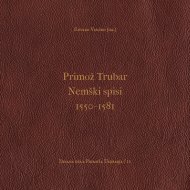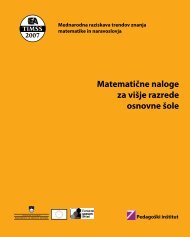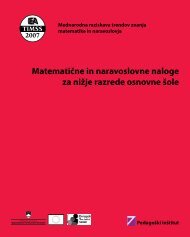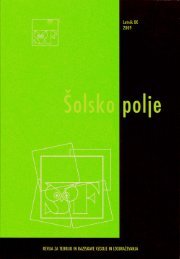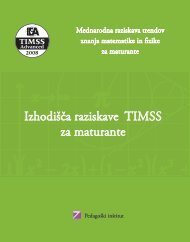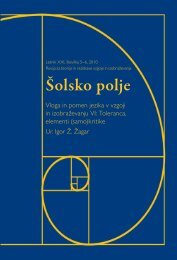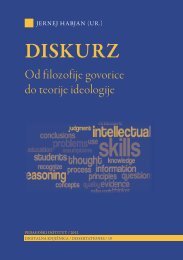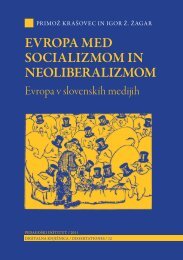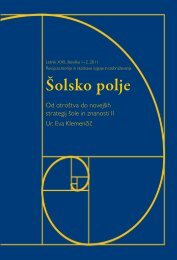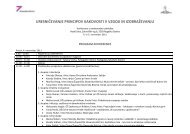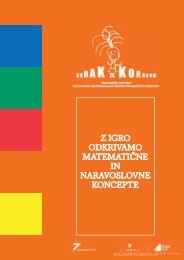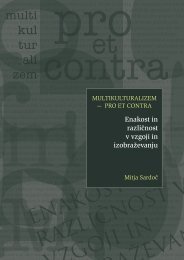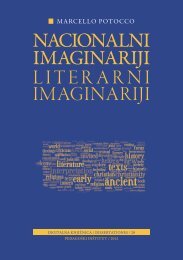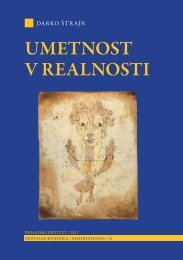Šolsko polje, letnik XX, številka 5-6, 2009: Vloga ... - Pedagoški inštitut
Šolsko polje, letnik XX, številka 5-6, 2009: Vloga ... - Pedagoški inštitut
Šolsko polje, letnik XX, številka 5-6, 2009: Vloga ... - Pedagoški inštitut
Create successful ePaper yourself
Turn your PDF publications into a flip-book with our unique Google optimized e-Paper software.
THE VOICE OF AN AGENDA-SETTING AUTHORITY - CONTENT CHARACTERISTICS ...103alizing was actually done through discourse. Thirdly, I will show how theHigh representative (HR) used language to exert power in constructingdemocratization and transition, two most important IC objectives in BiH,through a selection of particular discourse topics.2. Toward an interdisciplinary research agenda: discourse, politics andcommunicationAlthough the language of democratization appears universal, its contenttoday is a highly ideological one that qualifies liberal democracy in the statesof Eastern Europe and justifies the interference of Western institutionsinto their domestic affairs (Chandler, 2000:7). The IC’s presence in BiH wason one hand the result of the numerous wars and contention in the Balkansand one could argue that it was needed as such. On the other hand,the IC mandate and actions have stepped out of line defined by Dayton, bybeing overtly authoritarian, situating this discussion in the realm of postcolonial3 and globalist theories (Flowerdew, 1997, Todorova, 1997).Press releases fall into the register of political communication, or politicaldiscourse, as could the entire international community’s talk in BiH,and Wilson (2001: 398) warns of this danger when he says ‘all analysesof discourse are potentially political, and, that on one level, ‘all discourseanalysis is potentially political’. This study does not claim that discourse-analyticalapproach means reducing a social problem to its linguisticor communicative aspects; the language used by the High representativewhen talking about BiH or addressing the BiH citizens is the language ofa dominant elite that struggles for primacy with languages of other, competingelites (the state, political parties, nongovernmental sector etc..) inthe BiH public sphere.OHR’s press releases up until 2005 and later have been central in themainstream BiH media discourse which is socially constructing BiH realities.Although professional activities are characterized by special languages,access to which is usually restricted to members of a given profession(Lakoff, R., 1990, Tannen, 1990), and political leaders use these languages‘to exert power over the general public and develop support for theirpolicies’ (Kress, 1995 in Flowerdew, 1997: 454-455), the OHR’s discourseis not just ‘any’ institutional or professional discourse. It is relevant andworth studying because of the High Representative’s enormous influencein BiH even in <strong>2009</strong> as this organization was supposed to lead the country



